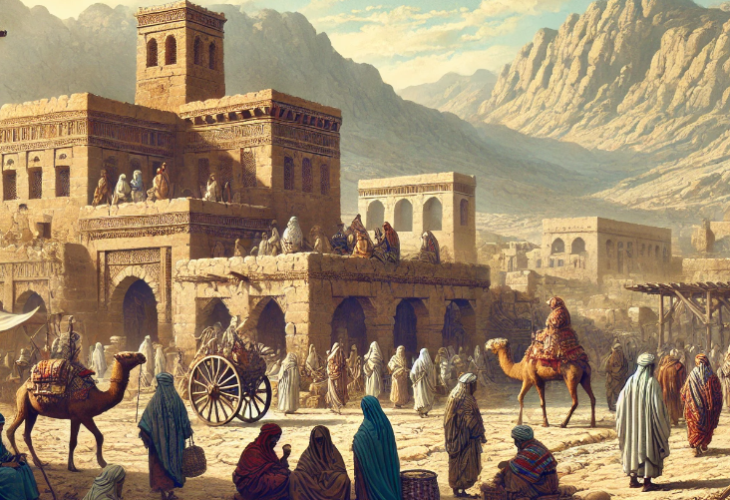A Jewish Legacy in Arabia: The Captivating Tale of Samuel Ibn Adiya
Samuel was a revered intellectual. Even the barbaric tribal leaders admired him, frequently seeking his wisdom and blessings. His works are still studied in Arab educational institutions, albeit without mentioning his Jewish heritage.

In the year 540 CE, or the Hebrew year 4321, in the region of Hejaz, now part of Saudi Arabia, the admired Jewish poet Samuel Ibn Adiya sat in his spacious tent. Today, the Hejaz is associated with famous sites like Mecca and the Black Stone. But back in 540, these held little significance to anyone. Muhammad had yet to be born, Islam did not exist, and many Jews lived safely on the Arabian Peninsula, now modern-day Saudi Arabia.
Samuel was a revered intellectual. Even barbaric tribal leaders admired him, frequently seeking his wisdom and blessings. Persian and Byzantine rulers, vying for regional control, maintained friendly relations with him, and his writings were widely circulated throughout Arabia. His works are still studied in Arab educational institutions, albeit without mentioning his Jewish heritage. His reputation has also been esteemed in Islamic culture.
In medieval ethical literature, Samuel's character was referenced as a moral figure to emulate. One story recounts how the famed Arab poet Amr ibn Kulthum entrusted money to Samuel Ibn Adiya. A powerful regional ruler coveted the money and attempted to coerce Samuel into revealing its location, threatening to kill his son. Samuel stood firm, and his son was indeed killed, but he did not betray the trust. This incident gave rise to the Arab proverb "No one is more faithful than Samuel" (*owfa min al-Samwal*).
Samuel Ibn Adiya passed away peacefully in old age. His only daughter, Bara, married Chai ben Ahitub, leader of the "Nadir" tribe — a Jewish tribe living in Yemen before Islam. Chai and Bara had a daughter named Safiya. As Islam rose, Muhammad declared war on Jewish tribes, capturing Chai ben Ahitub and torturing him for the location of Jewish treasures. Like his esteemed father-in-law, Chai resisted and revealed nothing before he was killed in agony. He tore his silk garment so that the evil Muslims would not benefit from it. The Muslims took his daughter Safiya captive.
Muhammad decided to make Safiya his wife, his eleventh. His other wives attempted to harm her, citing her Jewish heritage, prompting Muhammad to appoint a special guardian to protect her from them. Though her fate was harsh, Safiya, the daughter of righteous leaders, accepted her circumstances and did her utmost to aid her people. She observed Shabbat and kashrut, helping Jews whenever possible. They frequently sought her assistance to mitigate Muhammad's madness and the cruelty of his followers toward Jewish tribes. Safiya died at sixty, childless, and was buried in the Muslim city of Medina.

